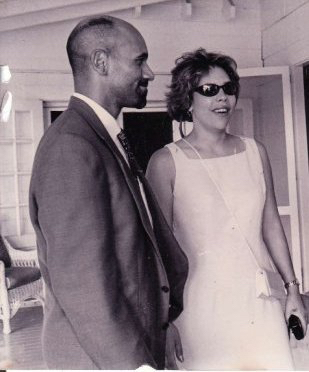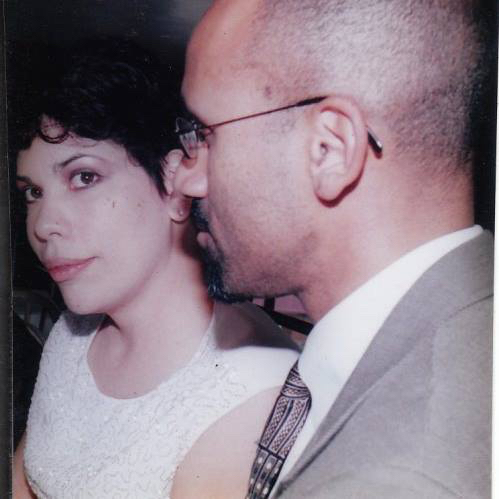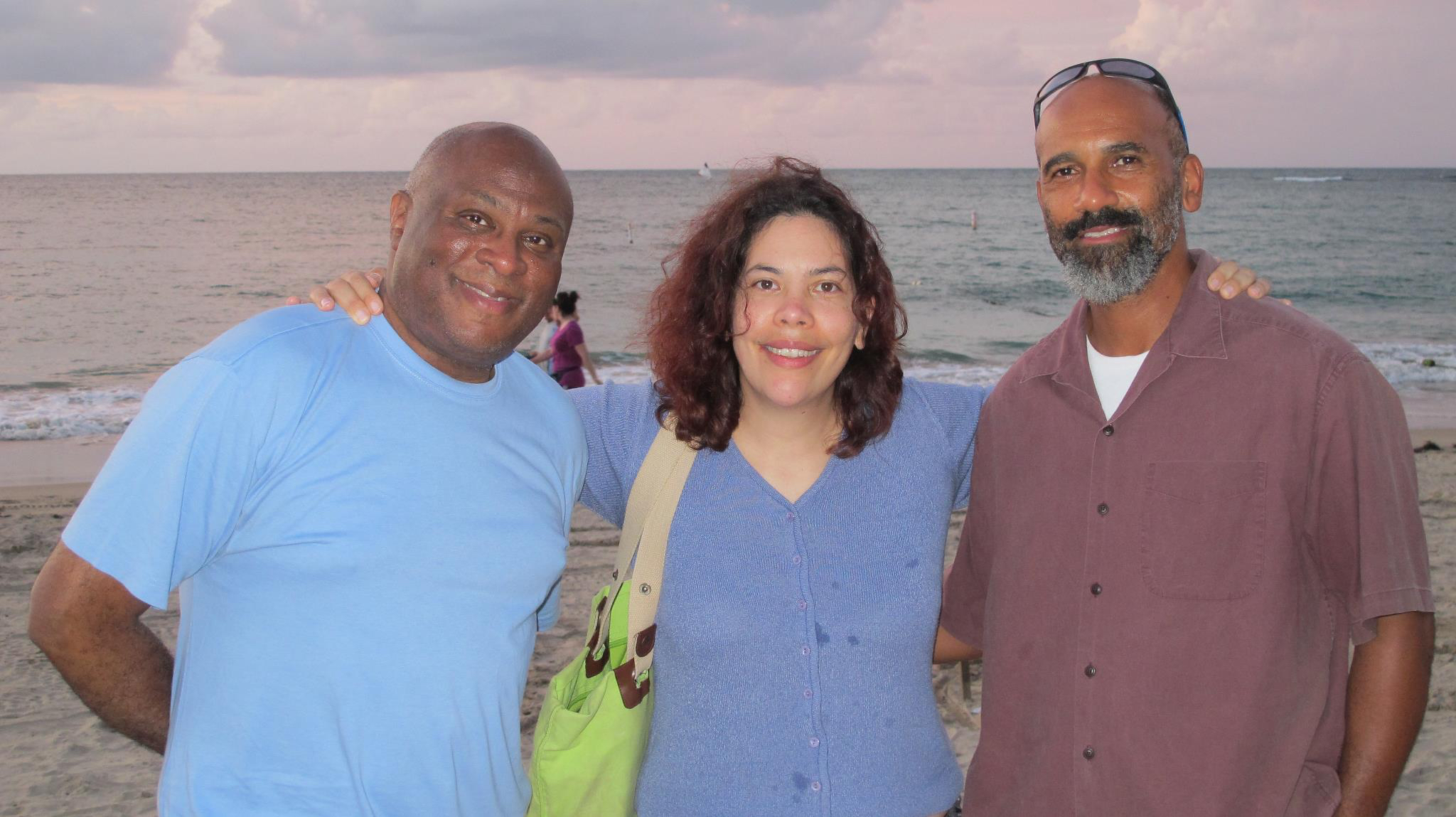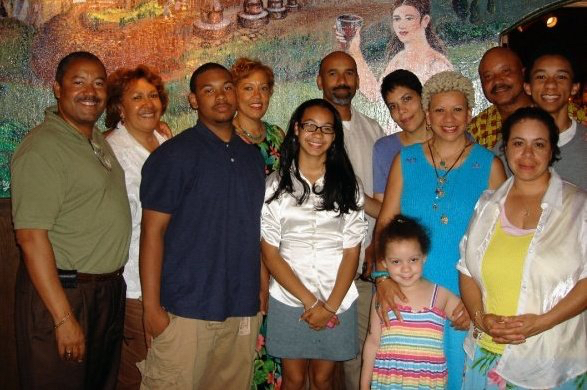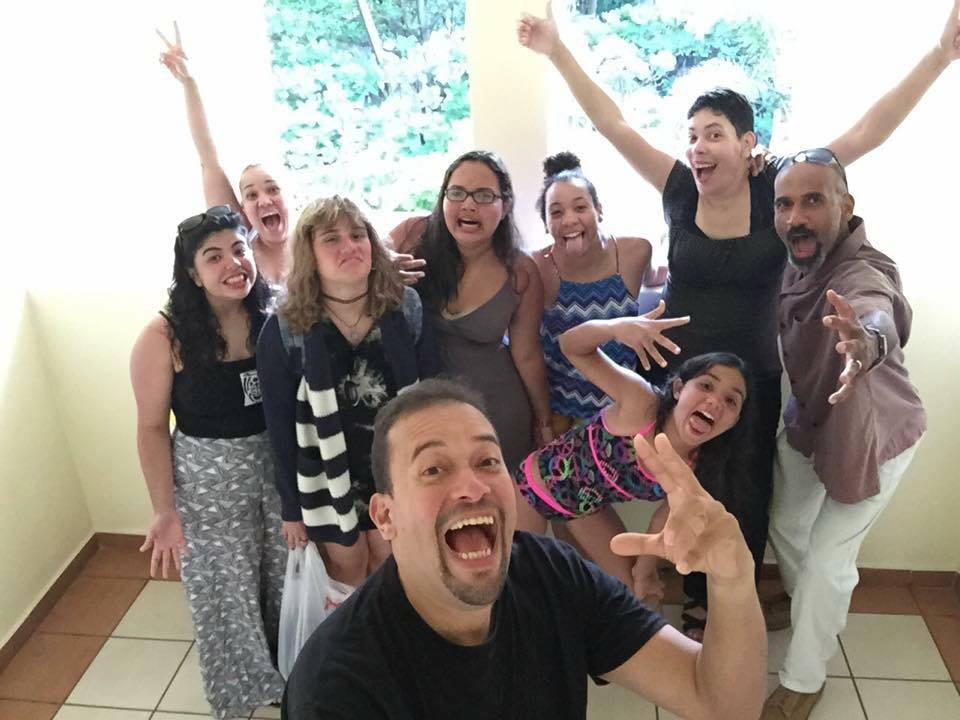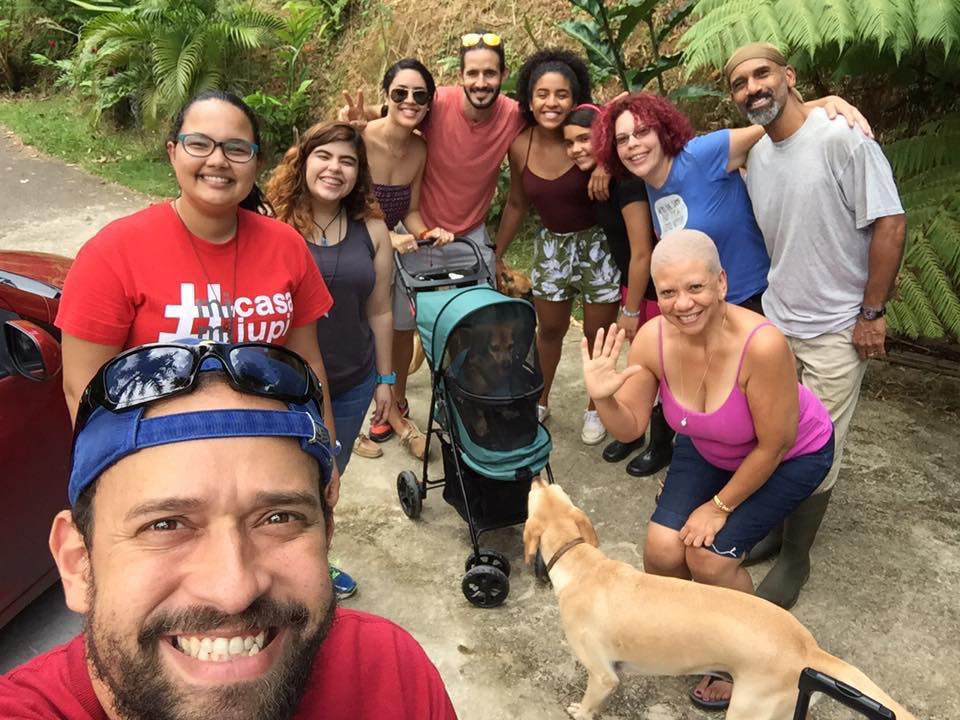Tony* was the guy all the girls wanted to be with: tall, handsome, a great smile, and very nice and friendly. With a complexion like honey, Tony was fetishized by brown-complected women and made White women feel he was just Black enough to piss off their parents, but not so Black they were forced to confront their own biases.
At the time we met in November 1995, I was living in Southwest Washington, D.C. in a tiny studio apartment barely big enough for my two cats, Milo and Otis, and me. I had recently lost my mother and left a boyfriend who’d been a complete nightmare—physically and emotionally abusive. After breaking up with the man I often “affectionately” refer to as Time Travel A$$hole (we’ve all met him in one form or another), I wasn’t thinking about anything serious and really had no business dating yet. I needed to reflect on what my part was in that relationship so I could be sure not to choose a guy like that again.
So when I met Tony in one of those hip and trendy coffee shops, I should have enjoyed the flirting and walked away. The next thing I knew, I was having dinner with him. Wait, where had I been heading when I met Mr. Tall, Not-So-Dark and Handsome? Oops!
Whirlwinds Never Work!
It wasn’t long until Tony and I were inseparable. When we weren’t spending every moment together—making everyone around us completely nauseated—we were on the phone talking for hours at a time.
Then one day he dropped a bomb on me. He wanted me to meet his mother.
“Oh she’ll love you!”
And she did. And so did his whole family. “She’s so pretty with her light skin.” His mother’s complexion was close to my own. Tony’s dad was darker and definitely very handsome. It was clear where Tony got his looks.
My mom used to tell me people tell you exactly who they are early on, you just need to be listening carefully. That comment of his mother’s should have been the first clue to run, but I didn’t.
As my friends met Tony, all asked the same question: “How did you grab a guy like him?” Not my usual kind of guy, everyone who knew me knew he wasn’t typical for me. I liked them cerebral—looks weren’t as important. I needed to be challenged intellectually. This isn’t to say Tony wasn’t capable of intellectual discussions, but maybe it wasn’t how he was raised.
I could bring that out of him, I thought.
When Tony asked me to marry him only a few months into the relationship, I was shocked but figured, “What the hell? I’m spending more time at his place than my own, his family loves me and he treats me nicely,” which I needed after years with my ex.
Tony’s mother couldn’t have been more thrilled.
“Oh your babies ‘gone’ look so beautiful with their light skin and pretty hair.”
Even though I hated when she did that, I was raised not to be disrespectful, and so I never addressed how icky it made me feel.
Six months later we were a day away from getting married (May 1996). My father had flown in from France (where he and my mom had retired to in 1988) alone, and the night before the wedding we had the obligatory rehearsal dinner. Tony’s parents, his three sisters, their husbands and his oldest sister’s kids all met my father for the first time.
Tony’s mom asked to speak with me privately in the ladies’ room.
“Sugah, you didn’t tell me your father was White.”
“Is that a problem?” I asked.
“Well, not really but you weren’t entirely honest with us,” she responded.
“What difference does it make whether I am light complected and both my parents are Black, or whether my parents were different races and I am the complexion I am? Why is complexion such a big deal in your family?” I paused. “And if you’re my complexion or lighter, doesn’t that mean you have a White parent or grandparent? I am not sure what it means but it definitely means there’s a lot of mixing on both sides of your family.”
“No, honey, my family has proudly maintained this light complexion by marrying other light complected people on both sides for generations.”
My jaw was dropping.
“What’s your mother?”
Tony’s mother asked me. Her eyes were intense and narrowed. She was genuinely angry.
“Black and Japanese,” I said.
“Japanese? Excuse me? You mean to tell me you’re not even half and half?” she asked me.
“How did you think I got this light complexion? If my mother was Black and my father was White, don’t you think I would be darker than I am? I can’t believe I am having this conversation with you the night before I am going to marry your son and be married into your … family.” I felt dizzy and nauseated.
“Oh sugah, imagine how we feel! This changes things. We will never truly be able to welcome you into the family. Who knows what my grandchildren will look like now?”
What the hell was she talking about? Changes what? Oh lawd have mercy on my precious soul, I thought. What had I gotten myself into? I grew up proud of my parents’ interracial relationship. I started thinking back to all the scrutiny and racism my parents faced when they got married. I thought about the fact that my father’s family disowned him for marrying my mother. What on earth does this change???? I wondered. I may have always self-identified as Black, but I know I am Black, Japanese and White. And I also prided myself on not giving a damn what other people’s races and ethnicities were.
That night I talked it over with Tony and told him that if this crazy talk continued, I’d leave and go far, far away. The only thing that could keep us together was if we both moved—away from these crazy people. Tony told me he’d have to think about all this. He too had, in his words, “been blindsided” by my disclosure.
Blindsided? Okay, in hindsight I probably should have pressed the issue of race. I shouldn’t have assumed it wouldn’t matter what race or races I was. Then I was mad because I knew it was an issue when they fussed over my light complexion and “pretty hair,” and I brushed it off.
The next morning I got up convinced I had to go through with this wedding. I committed to him and we were going to do this. And we were going to fight this insanity—as husband and wife. I dug my heels in.
When his family showed up to the church, they couldn’t have been more disrespectful. They sat in the front pew and all of them wore black and dark glasses during the entire ceremony. During the reception nobody in his family said more than five words to me, and whatever they did say was unpleasant.
There’s Only One Christmas Baby and If You Don’t Like It…
During the reception, I pulled Paul—Tony’s best man—aside. I asked him what this color struck crap was.
“Oh, Tony’s family has been like that since we were kids. Tony once had a girlfriend who was the complexion of Maya Angelou and they used to call her Sheronda that Black A$$ N*****er! They could never say just her name when they talked about her.”
I cried. What had I done? I hadn’t met anyone like this before. I knew White people who were racist against Blacks and even Blacks who had serious distrust of White people, but I had never met people of color who were so color struck to the point where my having a White father was a problem, or where my now husband’s ex was considered too dark. This was all such a new and upsetting experience for me.
There was never any marital bliss for Tony and me. Six months into the marriage I saw his family less and less frequently, and the few times we saw each other, things usually turned ugly quickly.
Not long after we were married, Paul had started having problems with his girlfriend. He called the house to talk with Tony about it, hoping he could shed some light. Or maybe Paul just needed a male shoulder to cry on.
As soon as Tony would see Paul’s number come up on the caller ID, he’d say, “You pick up. You’re better at this stuff than I am.”
Over time, Paul began to see this woman was no good for him, and the two broke up. I tried fixing him up with a few of my single girlfriends. He was a very nice guy, bright, could talk about any topic—definitely cerebral—and oh yes, very handsome.
And while there was no reason for Paul to continue calling me, he did and we found ourselves talking about everything under the sun—all the things I wished I could talk about with Tony: politics, philosophy, current events, anything other than how color struck his family was.
At one point I confided that Tony was staying out a lot and that I had suspected he was cheating. Paul hadn’t believed Tony capable of cheating and he kept encouraging us to try and work it out. Paul suggested we move out of the area—get some distance from his family.
The final straw came on Christmas day 1996. We were at one of his sisters’ houses. Linda* tolerated me, and I think it’s because her husband was darker complected and she couldn’t very well be a hypocrite. After dinner, Linda brought out a cake to celebrate birthdays. Mine is on the 22nd and Tony’s middle sister’s fell on Christmas day.
As everyone sang Happy Birthday to Jeana* and me, Jeana stopped the singing and said to me,
“There is only one Christmas baby here and if you don’t like it, you can leave, bitch!”
I couldn’t believe what I had just heard. I looked at Tony who was laughing. I had already started seeing him as a spineless jellyfish and I think that was the moment I decided enough was enough. I got up and said,
“You know what? That’s the best invitation I have ever gotten. I’ll go one step further, which ought to make your whole family happy. I want a divorce from all you racist and color struck a$$holes.”
It felt so good to say those words. I walked home—four miles in the freezing cold—and started packing. As I was packing, I called two people: first Paul and then my father. Paul asked if there was anything we could do to salvage things.
“Nope, I am a stubborn one but once I make up my mind, I am done.”
Paul made me promise to stay in touch.
When I talked with my father, he told me he was so sorry but that he’d always thought I’d married the wrong man.
“Your mother would have loved Paul! Have you ever thought about dating him?”
Huh!
Well, I’ll tell you this. Having gotten it horribly wrong the first time, I wasn’t going to jump into anything really fast, but I also wasn’t going to let myself be bitter. I got divorced wanting to be married. I loved marriage; I had just married the wrong man.
After my divorce was final—almost a year to the day Tony and I got married—two things happened.
First, Tony admitted he’d fathered a child with his ex-girlfriend—the one his family used to call "Sheronda that Black A$$ N*****er"! Their child was due in just a couple of weeks, which meant he’d cheated before I asked for a divorce.
I actually felt genuine happiness for him. I suspected he’d always loved Sheronda and maybe this would be what he needed to live his life and not his family’s life.
We parted on, surprisingly, good terms.
Second, Paul admitted he’d been in love with me since before I married Tony. This, you can imagine, was slightly awkward. Not that I wasn’t attracted to Paul. I was, but I was concerned what people would think—particularly Paul’s family.
On Thanksgiving Day 1997, several months after my divorce was final, I met Paul’s family. One of the first things I noticed was that their family—like mine—spanned the rainbow.
Both parents were Black, but like so many in the United States, due to miscegenation, his mother was even lighter in complexion than I am. His father was very dark in complexion, and Paul and his sisters’ looks reflected this mixing.
Paul’s family knows how I met Paul but until now, only four or five other people outside his family knew how we met. It’s not that we’re ashamed, but you know how people can be.
So why am I sharing this story so openly? As Paul and I are two months shy of celebrating our 16th wedding anniversary and 19 years as a couple, people can think what they want, but clearly my father was right—I had married the wrong man.
I have since corrected that mistake.
Any names with an asterisk have been changed to protect the not-so-innocent.
